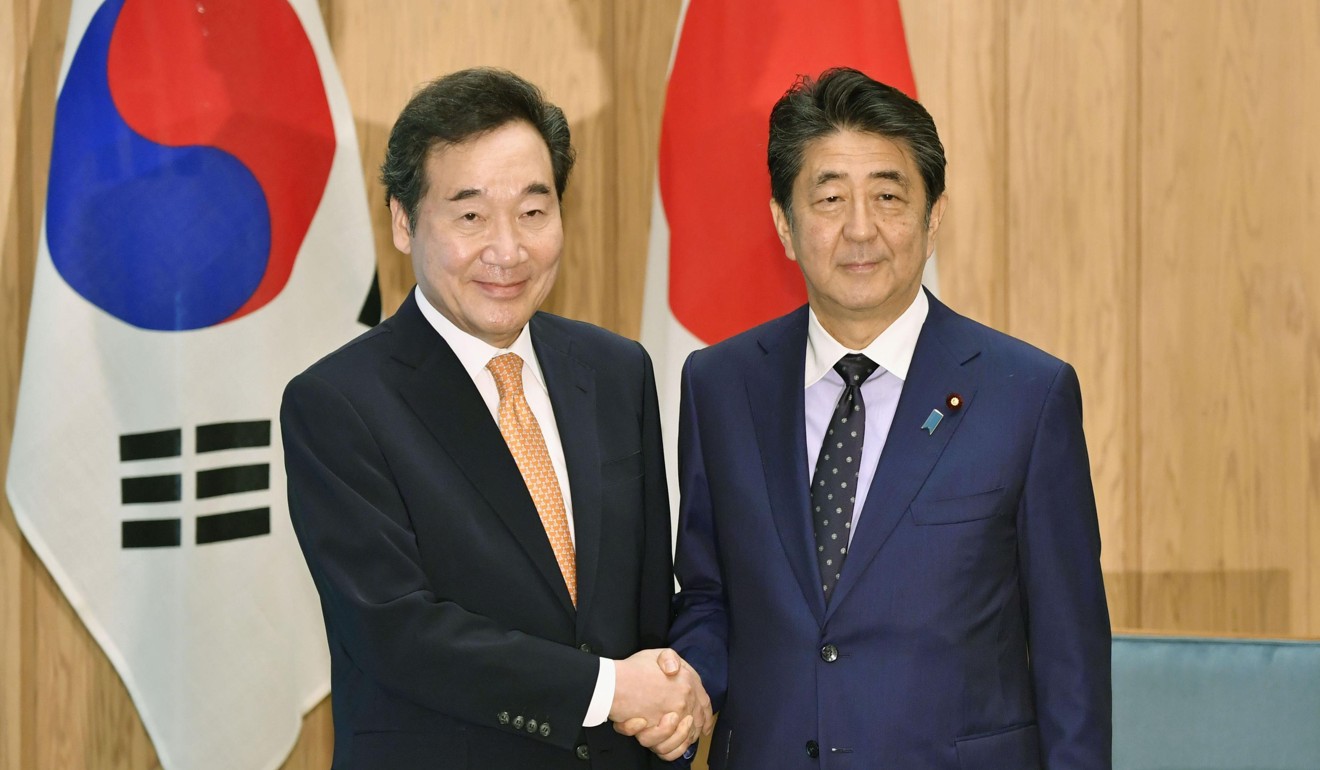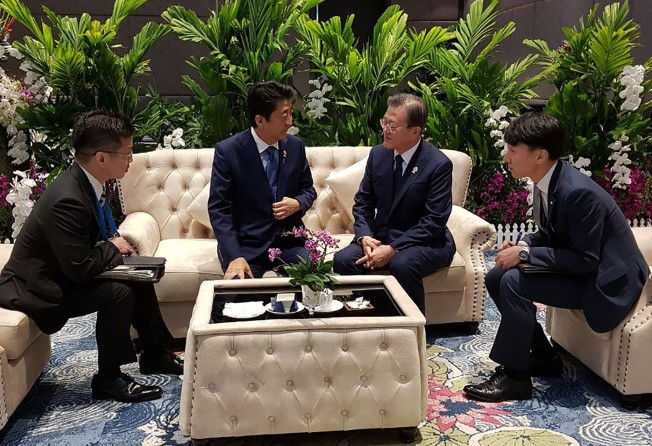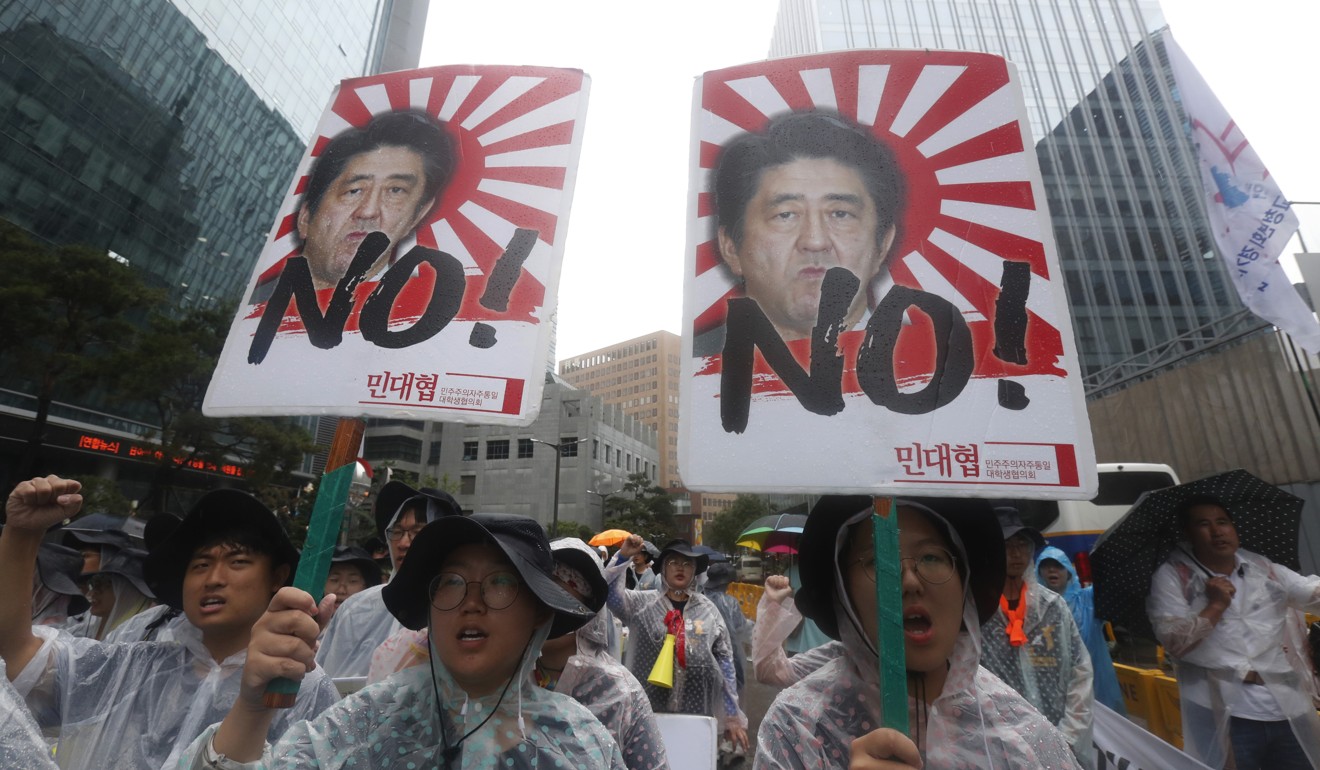
Shinzo Abe and Moon Jae-in meet for first time since Japan-Korea wartime labour row
- Leaders of Japan and South Korea meet for first time since September 2018 on the sidelines of the Asean summit in Bangkok
- The two countries have been in a deepening political and trade row since a court case demanding Tokyo compensate victims of forced wartime labour

South Korea’s President Moon Jae-in on Monday suggested to Japanese Prime Minister Shinzo Abe that the two countries take part in high-level talks to resolve a deepening political and trade row.
The two leaders held an 11-minute discussion on the sidelines of a meeting of the Association of Southeast Asian Nations (Asean) in Bangkok, said Moon’s spokeswoman Ko Min-jung.
It was the first meeting between them since September 2018, although they shook hands at the G20 in June.
“Both leaders reaffirmed the principle that bilateral issues should be resolved through dialogue,” said Ko. “President Moon offered higher-level talks if necessary, and Prime Minister Abe suggested seeking a resolution through all available means.”
Ties between the two countries have plunged to their lowest point in decades since South Korea’s top court last year ordered Japanese firms to compensate some wartime forced labourers. The feud has subsequently spilled over into trade and security issues.
Moon sent Prime Minister Lee Nak-yon to Tokyo last month for Emperor Naruhito’s enthronement ceremony with a personal letter calling for efforts to mend ties.

But there have been few signs of progress, with Abe insisting the issue of wartime forced labour was settled by a 1965 treaty that normalised relations following the 1910-45 period of Japanese colonial rule over the Korean peninsula. As part of that agreement, Tokyo had provided US$500 million to Seoul for “economic cooperation”.
South Korean National Assembly Speaker Moon Hee-sang on Monday said a bill had been crafted to facilitate the provision of donations to former wartime labourers at Japanese companies.
Moon told reporters in Tokyo the donations would be collected from Japanese and South Korean businesses as well as from individuals from both countries.
In July, Japan announced curbs on exports to South Korea of hi-tech materials used in smartphone displays and chips. Seoul interpreted the decision as economic retaliation for the court ruling on wartime labour and many South Koreans urged a boycott of Japanese products, including cars, beers and clothing brands.

In August, South Korea announced it would scrap an intelligence-sharing pact with Japan, undercutting security cooperation on North Korea.
Moon this year said a long-running dispute over the South Korean women who were forced to work in Japanese wartime military brothels – euphemistically known as “comfort women” – could be resolved by an apology from then Emperor Akihito.
“It only takes one word from the prime minister, who represents Japan – I wish the emperor would do it since he will step down soon,” Moon said during an interview with Bloomberg. “Isn’t he the son of the main culprit of war crimes?”
Moon made his remarks before Akihito’s April 30 abdication, which ended his three decades on the throne. He is the eldest son of wartime Emperor Hirohito, posthumously known as Emperor Showa.